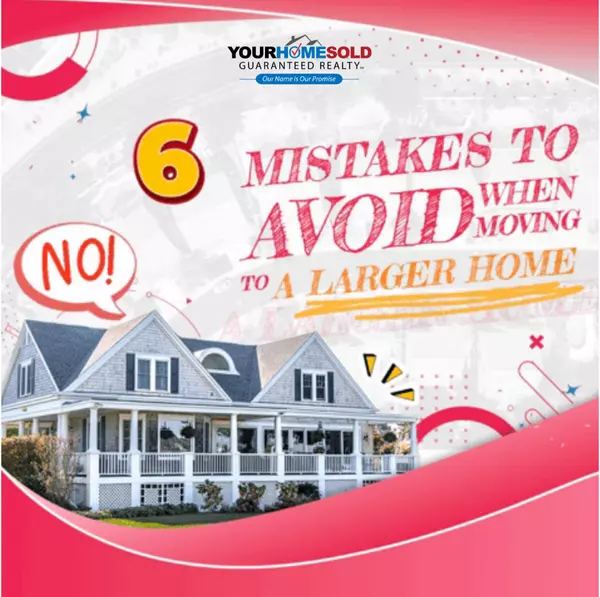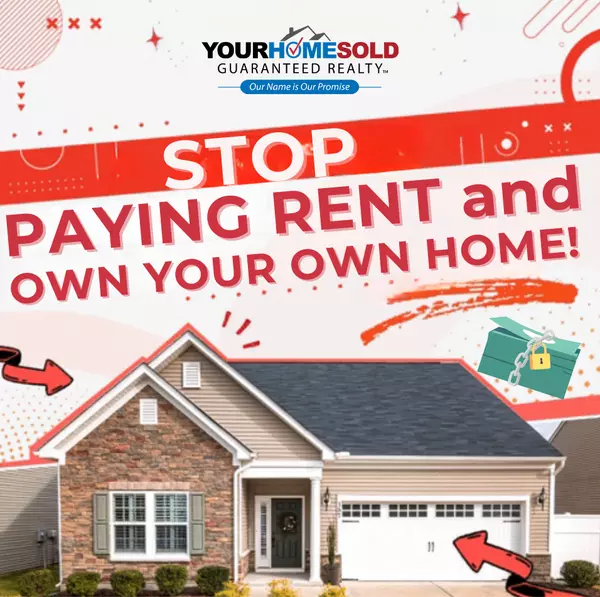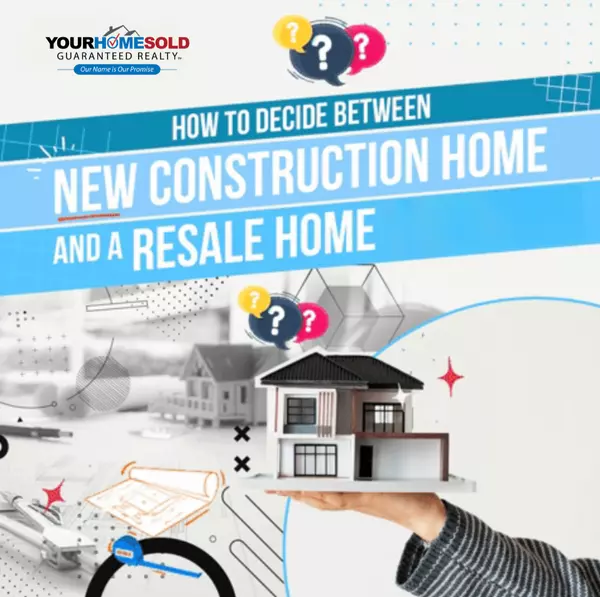

Move Up Guarantee
How to Avoid Getting Stuck With Two Homes The Problem We’ve all heard the old saying about being caught between a rock and a hard place. Well, unfortunately, that’s where most homeowners find themselves when they decide to move from one home to another. The Real Estate Catch 22 You see, if you buy before selling, you could run the risk of owning two homes. Or, just as bad, if you sell first, you could end up homeless. That’s what is known as the Real Estate Catch 22, and for thousands of homeowners, it’s an extremely stressful position they find themselves in. “ If you buy before selling, you could run the risk of owning two homes...” How to Avoid The Real Estate Catch 22 “...or just as bad, if you sell first, you could end up homeless” This financial and emotional tightrope is one many homeowners feel they have to walk alone. However, you should seek out agents offering specialized programs that can eliminate the stress and worry associated with selling and buying another home. The Solution The Dilemma The biggest dilemma when considering purchasing another home is deciding whether to buy first or sell first. Either way is risky because you could end up owning two homes or no home at all. Let’s face it, the real estate market has become a tough environment for buyers and sellers alike. The fact is that it’s more difficult to get homes sold today and therefore it’s essential that real estate agents look for new and innovative ways to meet the demands of the market. The Solution A new and innovative program that some agents offer actually guarantees the sale of your home and takes away all of the worry and stress associated with selling and buying another home. Here’s How it Works 1. Your agent will prepare a total market analysis including a computerized print-out of all comparable home sales and listings in your area. 2. With this information you and your agent can determine a market value for your home. 3. This establishes your guaranteed price and list price which you will receive up front (in writing) before your home is marketed. 4. You are doubly protected because you know that your home will sell for the guaranteed price. However if you receive an offer from an outside buyer for more than the guarantee price you get the higher offer. 5. You can confidently look for your next home and immediately place a firm cash offer (not a conditional one) when you find a home you like because you know the minimum that your home will sell for and when you can expect to receive the money from it’s sale. 6. This service eliminates the usual stress and worry (the emotional roller coaster ride) of whether to buy first or sell first so you can avoid the risk of getting stuck with two homes or no home at all. Remember, not all agents are alike and you should consider only those that can offer you the most innovative marketing plan available to ensure that your needs are completely and properly met.
Read More

For Sale By Owner
Sell Your Own Home For Sale By Owner If you ask anyone who has ever tried to sell their home themselves they’ll tell you that from the moment the “For Sale by Owner” sign goes up, the phone begins to ring. Unfortunately, many of those calls will not be from prospective buyers, but rather from real estate agents looking to obtain your listing. Obviously the idea of not having to pay a commission to a real estate agent is attractive to any homeseller. But because of all the issues involved in the process, selling a home on one’s own can be challenging as many homesellers will attest to. The key is to be properly prepared. If you are not, your home could remain on the market longer than you expect because you are not attracting and getting offers from qualified buyers. This can be a point where many homeowners become frustrated and consider giving up their dream of selling their home themselves. However, there are sellers who accomplish selling their own homes, very well. You can be one of them. This industry report has been especially prepared to assist homesellers, such as yourself, understand the elements involved so you, on your own, can sell your home quickly and for the most amount of profit. To help you prepare, here are 10 inside tips that you should be aware of before you make the decision as to whether or not this is the right approach for you. 10 Inside Tips for Selling Your Home Yourself 1. Price it Right Correctly setting your asking price is critical. Setting your price too high can be as costly as setting it too low. Home prices are determined by fluctuations in the marketplace not by your emotional attachment or by what you feel your home is worth. In order to establish a realistic price for your home, objectively compare the price, features and condition of all similar homes in both your neighborhood and other similar ones which have sold in recent months. It is also important for you to be familiar with the terms of each potential sale. Terms are often as important as price in today’s market. Carefully budget your selling costs and prepare a net proceeds sheet to calculate your best estimate of what you will take away from your home sale. Prospective buyers may also request this kind of analysis of buying costs. 2. Prepare Your Home for Sale First impression is crucial. Make sure your home makes a positive statement by carefully inspecting all details and viewing it through the objective eyes of a buyer. Don’t gloss over needed repairs and fix-ups, as your prospective buyers won’t. Your job is to ensure that your home stands out favorably from the competition. 3. Prepare Yourself With All Necessary Legal Documentation Not surprisingly, there are many important legal contracts and documents which you must assemble, complete and understand. A partial checklist of forms that you will require for prospective buyers and for legal documentation is as follows: Seller Disclosure Purchase Contract Mortgage Payoff Loan Application Deposit Receipt Property Profile Fact Sheet Buyer’s Cost Sheet Closing & Settlement Personal Property Exclusion List Property Survey/Plot Plan Sellers Statement of Representation 4. Market Your Home Effectively Beyond the sign you will put on your lawn, you should find effective ways to spread the word about your home. Local buyers can be reached through the newspaper, but this is only a small part of the market you are after. Be sure you include the many buyers who could already be working with a Realtor®. To locate them, target as many top agents as possible in your market to see if the criteria of their buyers matches that of your home’s. Because out-of town buyers are also an important target, you should create a strategy to reach these people as well. Above all, you should be very service minded and make it easy for prequalified buyers to view your home. Ensure there is always someone available to answer the phone, pick up messages promptly, and be ready to give qualified prospects a tour of your home as soon as possible. 5. Remain Objective During a Showing of Your Home Keep emotion out of the sale of your home, and the best way to do this during a showing is to remain physically in the background. If a prospective buyer says something negative about your home, it is better to counter-balance this point of view by illustrating the positives rather than becoming defensive. 6. Pre-Qualify Your Prospects Don’t waste your time entertaining buyers who could never afford your home. Research their financial steadiness with respect to job security, salary, debts, liabilities and credit standing. 7. Negotiate Effectively & Knowledgeably There will be many details to resolve before a sale can be considered final: price, terms, inspections, possession date, buyer concerns and objections. Make sure you fully understand the contract you have drawn up so you can in turn explain details and ramifications to the buyer and make any amendments to the sale that are necessary. The contract you use should be thoroughly examined by your real estate attorney. Some real estate brokers may be willing to help you do this. While this is going on, manage the buyer’s interest in your home so that it doesn’t wane during negotiations. 8. Know Your Buyer Your objective during negotiations is to control the pace and set the duration. Try to determine what your buyer’s motivation is. Does he or she need to move quickly? Do they have enough money to pay your asking price? Knowing this information will give you the advantage in the negotiation because you will know up front, what you will need to do in order to get what you want. 9. Don’t Move Out Before You Sell Studies have shown that it is more difficult to sell a home that is vacant. It looks forlorn, forgotten, simply not appealing. It could even cost you money. If you move, you’re also telling buyers that you have a new home and are motivated to sell fast which can, of course, give them an advantage at the negotiating table. 10. Know Why You’re Selling and Keep it to Yourself The flip side of “understanding your buyer” is to “understand yourself”. Your reasons for selling will affect everything from your list price to how much time and money you will invest in getting your home ready for sale. Your motivation will help you determine what is more important to you: the money you walk away with, the length of time your property is on the market, or both. Different goals will dictate different strategies. As someone who wants to sell without a real estate agent in an effort to save the commission, it is likely that money is one of your primary considerations, (see below). Whatever your reasons, however, it is very important to keep them to yourself so as not to place yourself at a disadvantage at the negotiation table. When asked, simply say your housing needs have changed. How to Assess Your Net Gain To analyze whether or not you will end up ahead by choosing to sell on your own, consider the fact that most buyers do use a real estate agent because it doesn’t cost them anything for this service (i.e. the seller pays the agent’s fee). Be cautious as buyers, investors and speculators who seek out For Sale by Owners are typically those in search of a bargain. The low-ball offers from these types of buyers will often net you much lower in the long run. What you will have to judge for yourself is the following: 1. Be as prepared as possible with your marketing, negotiations, evaluations, showings and all legalities. 2. Consider what it will cost you to effectively market your home and assemble all necessary materials from the “for sale” sign to any contracts? 3. What price will a buyer offer you as a For Sale by Owner minus the costs identified in point 2 above. Is this net price higher than the price an experienced agent could net for you minus his/her commission?
Read More

Your House Didn't Sell
How to Sell a House That Didn't Sell Expired If your home has just come off the market and hasn’t sold, don’t be discouraged. The reason it didn’t sell may have nothing to do with your home or the market. In reality, your home may have been one of the more desirable properties for sale. If your listing has expired and you still want results, before you put your home back on the market, take a step back and review your situation. Q. Where should you begin? A. Start by making a commitment to do what it takes to market your house to get it sold. With the right system, the home sale you want is still well within reach. Q. Why didn’t your home sell? A. Review your previous selling plan and you’ll discover that an expired listing usually reflects a problem in one or more of these four major areas: Teamwork Pricing Condition of Your Home, and Marketing Why Don’t Some Houses Sell?4 Important Points That Will Get Your House Sold! 1. Teamwork Your home is a major financial investment, and your relationship with your Realtor® should be a full partnership where your needs and wishes are heard, and you receive detailed and dependable feedback on the progress of your sale. Your agent has a responsibility to source this feedback from the agents who have shown your home, and to communicate this to you so together you can make the right decisions about what to do next. How well did this occur the last time you had your home up for sale? 2. Pricing Did price work for or against you? The “right” price depends on market conditions, competition and the condition of your home. Pricing it too high is as dangerous as pricing it too low. If your home doesn’t compare favorably with others in the price range you’ve set, you won’t be taken seriously by prospects or agents. You’ll get the facts when you see the statistics! To help you to establish a realistic selling price for your home, ask your agent to provide you with an up-to-date competitive market analysis to give you: a review of comparable homes recently sold or currently for sale, an idea of how long other homes have been listed, in order to calculate an average time in which a home can sell in today’s market, a review of homes whose listings have expired, to understand what issues were at play. Note: There is no mention of how much you paid for your home or its improvements. Like any other investment, the market value is determined by what a willing buyer will pay and a willing seller will accept. 3. Condition Of Your HomeShowcase Quality! Is your house someone else’s idea of a dream home? When buyers enter are they inspired? Do they think, “I love this house!” Remember, the decision to buy a home is based on emotion, not logic. A house in move-in condition invites a sale. You need to consider: fixing all the little squeaks and cracks keeping it clean for all showings making it uncluttered brightening it up what your home shows like from the street concentrating on outside curb appeal. Plus — Consider taking care of major items, such having your home painted. Offering an allowance to your prospective buyers, so they can have painting completed is not the same as having done it for them. Now, as they’re trying to imagine what that new paint job will look like, they may also be discounting the price even further because of the less-than-perfect look of those walls. Remember...A house that presents well, sells for the best price because it outshines the competition. Ask your agent if they can arrange a no-obligation inspection of your home to help you assess the above. 4. Marketing...Marketing Your Home To Sell! Some Questions You Should Be Asking! One of the first steps in your marketing plan involves finding an agent who will best represent you. When interviewing agents, test and compare their knowledge and ask each to demonstrate how they will market your home to buyers. Compare, too, how much money each spends on advertising the homes s/he lists, in what media (newspaper, magazine, etc.) and the effectiveness of one medium over the other. Remember, it’s not just how much they spend, but how they spend it. Say goodbye to any real estate agents using old, traditional methods to sell your home because they don’t work in today’s market! To be competitive in today’s marketplace, agents who use new and innovative, nontraditional marketing approaches are the ones who are getting more homes sold fast and for top dollar.
Read More
Categories










